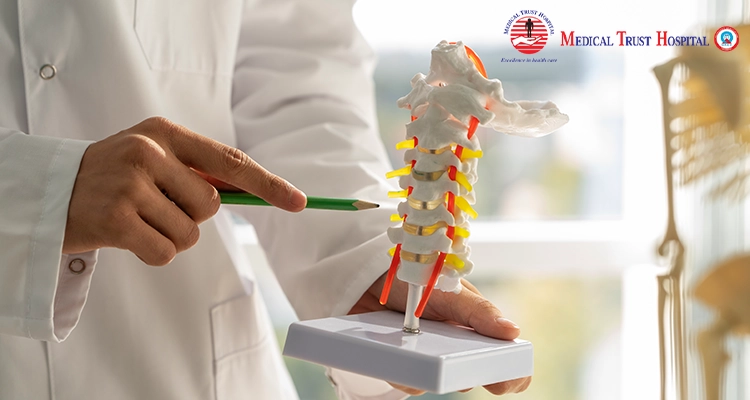Back and neck pain are widespread issues that affect millions of people globally, often interfering with daily activities, work, and overall well-being. While many individuals experience occasional discomfort due to muscle strain, poor posture, or minor injuries, persistent or worsening pain can be a sign of a deeper, more serious spinal condition. The spine is a complex and delicate structure that plays a critical role in supporting your body, protecting the spinal cord, and enabling movement. When spine-related problems arise, early diagnosis and treatment are essential to prevent further damage and long-term disability.

Why Is It Important to See a Spine Surgeon?
It is important to see a spine surgeon when you have constant back or neck pain, weakness, numbness, or difficulty moving. Spine surgeons are experts in diagnosing and treating complex spine problems. They can find the root cause of your pain using advanced tools and suggest the best treatment options. Early consultation can prevent the condition from getting worse and may even help avoid the need for surgery.
Key Points:
- They help diagnose problems like herniated discs or spinal stenosis.
- Early treatment can stop the condition from becoming worse.
- They offer both surgical and non-surgical treatment options.
- Seeing a specialist early may help avoid long-term damage and improve quality of life.
Common Signs That Indicate You Need to See a Spine Surgeon
- Constant or severe back or neck pain
- Numbness or tingling in the arms, legs, hands, or feet
- Weakness in the limbs
- Difficulty walking or maintaining balance
- Loss of bladder or bowel control (in severe cases)
- Pain that doesn’t improve with rest or medication
- Trouble doing daily activities due to spinal discomfort
What to Expect When You Visit a Spine Surgeon?
When you consult a spine surgeon, the evaluation begins with a comprehensive review of your symptoms, medical history, and any previous treatments or injuries. This is followed by a thorough physical examination to assess your spinal alignment, range of motion, muscle strength, and neurological function. To gain deeper insight into the condition of your spine, the specialist may recommend advanced imaging tests such as MRI, CT scans, or X-rays, which help identify issues like disc problems, nerve compression, or structural abnormalities.
Preventive Tips for Spine Health
While some spine conditions develop due to injury or aging, maintaining a healthy lifestyle can reduce your risk of chronic problems:
- Maintain good posture while sitting and standing
- Use ergonomic furniture, especially if you work long hours at a desk
- Stay physically active with exercises that strengthen your core and back muscles
- Avoid heavy lifting or use proper techniques when lifting
- Maintain a healthy weight to reduce spinal stress
- Quit smoking, as it impairs blood flow and healing
Your Path to Lasting Spine Health Starts with Expert Care
Recognizing the warning signs of serious spine problems and seeking timely consultation with a specialist can make all the difference in managing your back or neck pain effectively. Early intervention not only prevents further damage but also enhances your chances of a full recovery, helping you maintain an active and fulfilling life.
At Medical Trust Hospital, we are committed to providing exceptional spine care tailored to your unique needs. Our team of highly skilled spine surgeons and specialists in Cochin use the latest technology and evidence-based treatments to deliver comprehensive, patient-focused care.
Don’t let spine pain control your life, reach out to Medical Trust Hospital and take the first step toward relief and renewed mobility today.